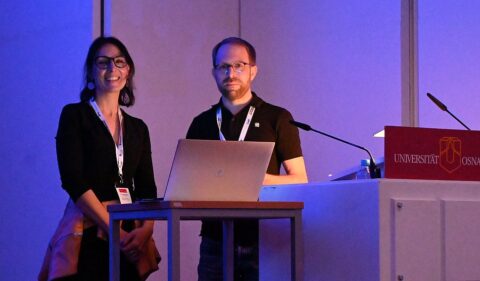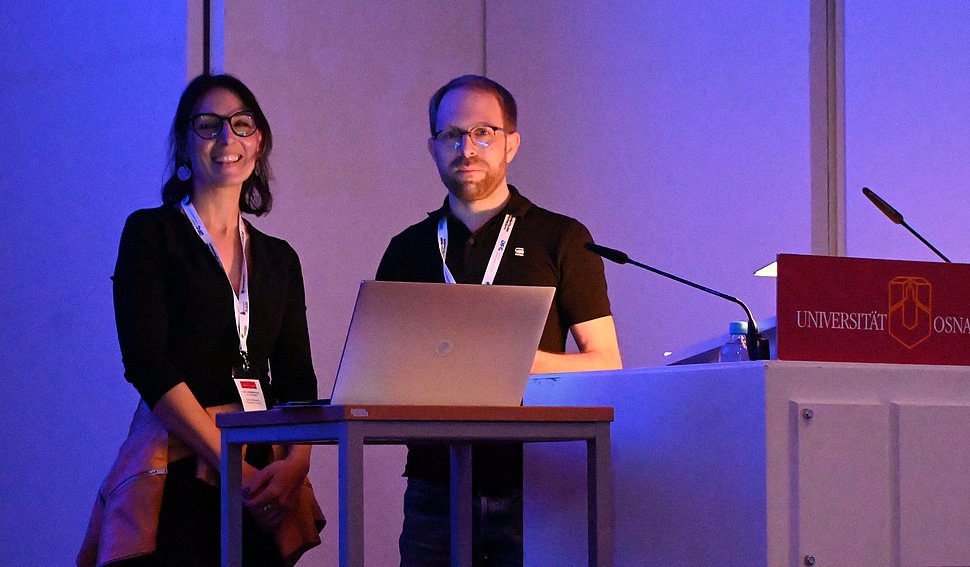Daniel Wehner receives the Hilde Mangold Science Prize

Congratulations to Daniel Wehner on receiving the Hilde Mangold Science Prize!
We are pleased to announce that our EBM PI Daniel Wehner, research group leader at the Max Planck Institute for the Science of Light, has been awarded the Young Research Award from the German Society of Developmental Biology. The prize recognizes outstanding research and activity in the field of developmental biology and is awarded every two years to early career-stage researchers. Based on his findings in the field of neuroregeneration, Wehner has made a significant contribution to a better understanding of scar formation and regeneration after injuries to the central nervous system.

Spinal cord injuries can lead to irreparable and permanent loss of function in humans as the injured nerve fibers do not regrow. However, some animal species such as the zebrafish can regenerate severed nerve pathways and restore motor functions. Why this is the case and which biochemical and biomechanical factors play a role in the nervous system’s wound healing process is the research topic of Daniel Wehner’s team. The biotechnologist has shown that although the different species form scar-like wound tissue after injury, there are crucial differences in its biochemical composition and mechanical properties. The wound tissue in zebrafish is not only permissive to regrowing nerve fibers but also necessary for the regeneration of nerve fibers.
Furthermore, Daniel Wehner was able to identify specific proteins of the small leucine-rich proteoglycans (SLRPs) family as an important factor limiting nerve regeneration in mammals. However, the SLRPs are barely enriched in the wound tissue of zebrafish. The scientist combines methods of genetics with approaches in physics to decipher the biomechanical and biochemical role of the extracellular space in the regenerative context.
The award ceremony took place at the 25th Meeting of the German Society for Developmental Biology together with the Dutch Society for Developmental Biology (DSBD) in Osnabrück. In addition to the Hilde Mangold Science Prize, other honors took place including the best dissertation and honoring the life’s work of the renowned Max Planck scientist and Nobel Prize winner Christiane Nüsslein-Vollhard with the Klaus Sander Prize.
Source: Max Planck Institute for the Science of Light, Link to original page.
Please also take a moment to check out this link: Interview with the 2024 GFE Hilde Mangold Award Winner, Daniel Wehner.
